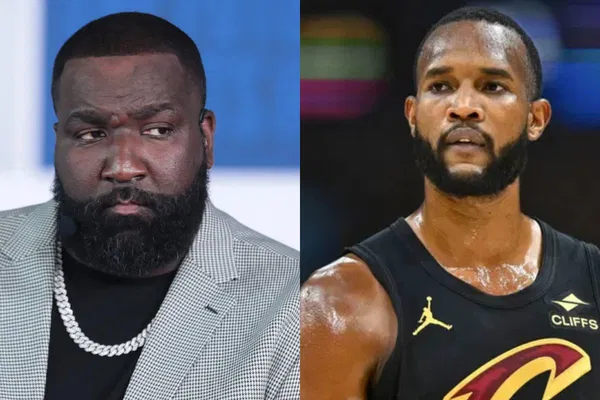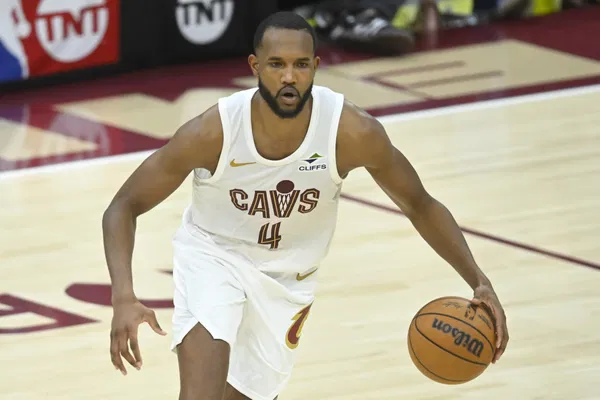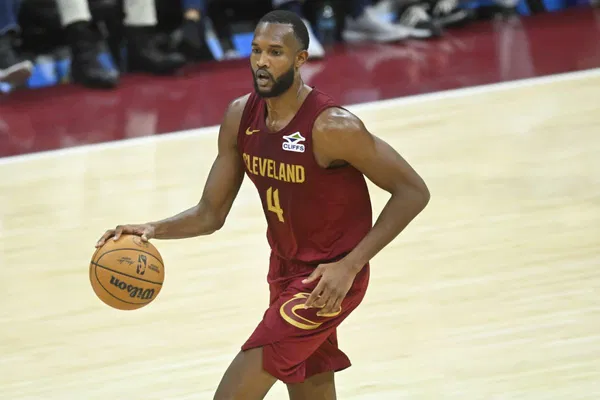 Here’s a full breakdown of what’s going on — and what Kendrick Perkins said — in the controversy involving Evan Mobley’s trainer and the Cleveland Cavaliers’ locker room:
Here’s a full breakdown of what’s going on — and what Kendrick Perkins said — in the controversy involving Evan Mobley’s trainer and the Cleveland Cavaliers’ locker room:
Background
After the Cavaliers’ disappointing playoff exit in 2025, Evan Mobley’s longtime trainer, Olin Simplis, made a provocative claim: he argued that Cleveland could’ve advanced further if their offense hadn’t been too centered around Donovan Mitchell. According to Simplis, Mobley’s production (or usage) was suppressed, which limited Cleveland’s potential.
Simplis noted that Mitchell accounted for ~27.9% of the team’s shot attempts and had a ~41% usage rate during that postseason stretch.
In response, former Cavs star Richard Jefferson publicly pushed back, stating he wouldn’t respond to trainers or external voices criticizing team strategy:
> “If you are not in this … you’re hiding in a gym working out.”
So the stage was set: an external voice criticizing internal decisions, and tensions over how credit and blame should be assigned.
What Kendrick Perkins Said — The “Warning”
Kendrick Perkins, known for his blunt and outspoken commentary, weighed in strongly. Here are his main points:
1. Defensive performance vs. reputation
Perkins questioned whether Mobley’s defensive impact showed up when it “mattered most” in that playoff series. He pointed out that, while Mobley won Defensive Player of the Year, he didn’t consistently demonstrate that impact against Myles Turner and Indiana.

2. The danger of external voices in the locker room
Perkins issued a warning:
> “Keep the motherf—‑s outside your locker room. This type of s— will break up a locker room.”
In other words, he cautioned that internal cohesion can be damaged by external critiques or voices trying to influence team dynamics.
3. Critique of team decision‑making and strategy
He raised questions about how much the team trusted or empowered Mobley offensively. He contrasted that with how often Mitchell was used in key plays and suggested that Mobley’s lack of a higher usage was part of the internal issue.
Also, Perkins alluded to earlier coaching changes: he mentioned that the organization replaced J.B. Bickerstaff with Kenny Atkinson, supposedly with an aim to “unlock” Mobley.
Overall, Perkins framed the critique as more than just basketball strategy — it’s about protecting a team’s culture from outside noise.
Wider Context & Repercussions
This isn’t the first time Perkins has criticized how the Cavs manage their stars or coaching. He’s previously accused Donovan Mitchell of having influence on Bickerstaff’s dismissal and questioned the team’s toughness in playoffs.
The risk Perkins highlights is a real one in sports: when outsiders (trainers, agents, media) start making strong public judgments, it can sow distrust or division among players, coaches, and management.
Whether his “warning” will have real consequences is uncertain — much depends on how the Cavs’ leadership and players respond. If the locker room feels interference or unfair critique, it could strain chemistry. But if the team rallies and uses this as internal motivation, it could strengthen resolve.
